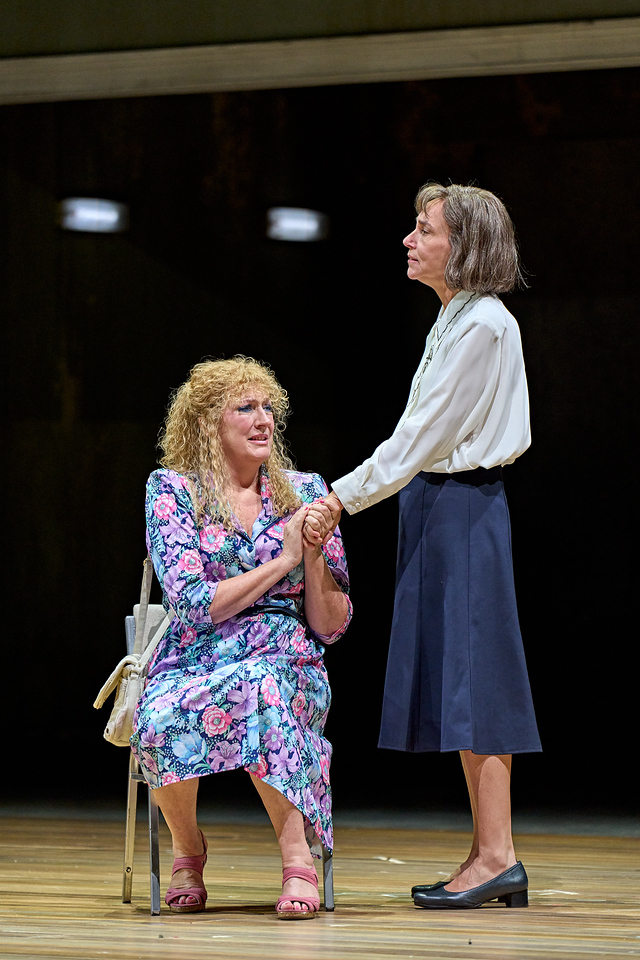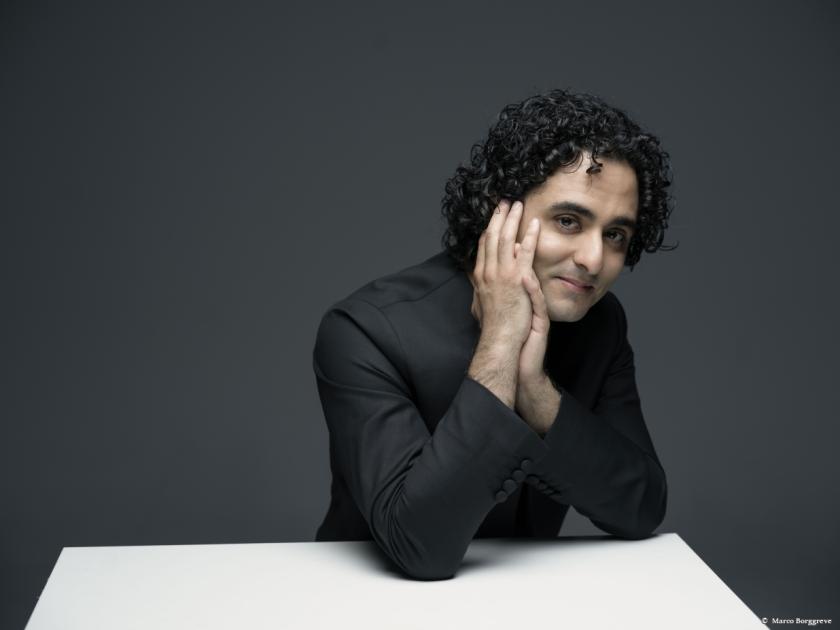There is a scene in the second act of Jake Heggie and Terrence McNally’s Dead Man Walking in which the man condemned to death, Joseph De Rocher, with his spiritual advisor Sister Helen Prejean in tow, have a devastating interaction with his mother. A final, inconsolable goodbye before De Rocher is processed for his impending execution.
As an opera conductor, I find myself maintaining a fine balance between keeping a practical, level-headed overview of the elements under my leadership; the balance of the orchestra, the way the stage is connecting with the music, the singers’ cues, and then the deeper emotional content of the piece, using my gestures to articulate the nuances of the music being performed. An experience like no other – opera conducting is a shape-shifting of priorities on the podium. This is something I have trained for, something I have repeated on numerous occasions. But during our production rehearsals in the halogen lit room of our rehearsal space, I found myself, for the first time ever, having to excuse myself to go and splash cold water on my face. The music, staging and singing were simply overwhelming. Such is the power of opera (pictured below by Manuel Harlan: Sarah Connolly and Christine Rice).
 Conducting Dead Man Walking has been transformative. Without wanting to lay on the rhetoric too thick, this has quite simply been an experience like no other. My music staff and I have left rehearsals simultaneously inspired, burning to do this opera justice, while also leaving us completely and utterly emotionally shattered.
Conducting Dead Man Walking has been transformative. Without wanting to lay on the rhetoric too thick, this has quite simply been an experience like no other. My music staff and I have left rehearsals simultaneously inspired, burning to do this opera justice, while also leaving us completely and utterly emotionally shattered.
Dead Man Walking is the most frequently performed opera of the 21st century and the most successful of all contemporary American operas, with over 80 productions of it staged worldwide since it premiered at San Francisco Opera in 2000. Having its first main stage premiere here in the UK has been a long time coming.
Story telling is what we do in opera, but bringing this haunting true story of the inspirational Sister Helen Prejean and her journey as spiritual advisor to a man on death row, convicted of the violent murder and rape of two teenagers, has tested us like no other.
What defines any great opera is, in my humble opinion, the result of the synthesis between how the music conveys the power of the libretto, coupled with the way the staging enables this story telling.
The synergy between Terrence McNally’s libretto and Jake Heggie’s music is as close to the perfect opera as I have ever come (a grand statement, I know). With Jake’s ingenious use of leitmotifs, and a harmonic and rhythmic tension that permeates itself throughout the work, we find ourselves on a perfectly balanced musical arc. Both the ENO Orchestra and Chorus dive fearlessly into this complex score, showcasing their world-class abilities and versatility as an opera company of the 21st Century.
As opera is one of the most complex art forms, even the most evocative music and distinguished libretto require a director and singers to do the work justice. This is where I believe ENO have truly struck gold. Annilese Miskimmon’s staging and rehearsal process allows our world-class cast to shine. We are incredibly lucky to be joined by Christine Rice singing the role of Sister Helen Prejean and Dame Sarah Connolly as Joseph de Rocher’s mother. In the role of Joseph De Rocher, we have American baritone Michael Mayes, who is no stranger to the music of Jake Heggie, and especially this opera, having performed this particular role over a dozen times.
 I have the greatest respect for ENO, the place where I saw my first-ever opera, and then a year later taking work experience as a green 15-year-old with the company. You can only imagine how it felt making my house debut conducting its 2022 revival of Phelim McDermott's production of Così fan tutte, then returning for its 2023 revival of Calixto Bieito's Carmen. But there is something special about a new production, taking Dead Man Walking to the UK main stage, and working closely with ENO’s Artistic Director, Annilese Miskimmon. (Hasan pictured left by Marco Borggreve)
I have the greatest respect for ENO, the place where I saw my first-ever opera, and then a year later taking work experience as a green 15-year-old with the company. You can only imagine how it felt making my house debut conducting its 2022 revival of Phelim McDermott's production of Così fan tutte, then returning for its 2023 revival of Calixto Bieito's Carmen. But there is something special about a new production, taking Dead Man Walking to the UK main stage, and working closely with ENO’s Artistic Director, Annilese Miskimmon. (Hasan pictured left by Marco Borggreve)
The London Coliseum is a wonderful space. It requires careful balancing of the voices on the stage and orchestra and, having sat both in the orchestra pit and in the audience, it can feel simultaneously cavernous and surprisingly intimate. It is the perfect venue for staging Dead Man Walking, where the breadth of music ranges from the sublime to earth-shattering violence.
While the world may have changed over the last 25 years, the issues that Dead Man Walking tackles feel as urgent today as they did a quarter of a century ago – the music as visceral and heartbreaking. Opera still has the power to electrify audiences and illuminate complex moral issues. Few operas possess that power like Dead Man Walking. If you are looking for an opera that takes aim straight for the soul, this masterpiece is the one for you.
Dead Man Walking will be reviewed on theartsdesk next week















Add comment